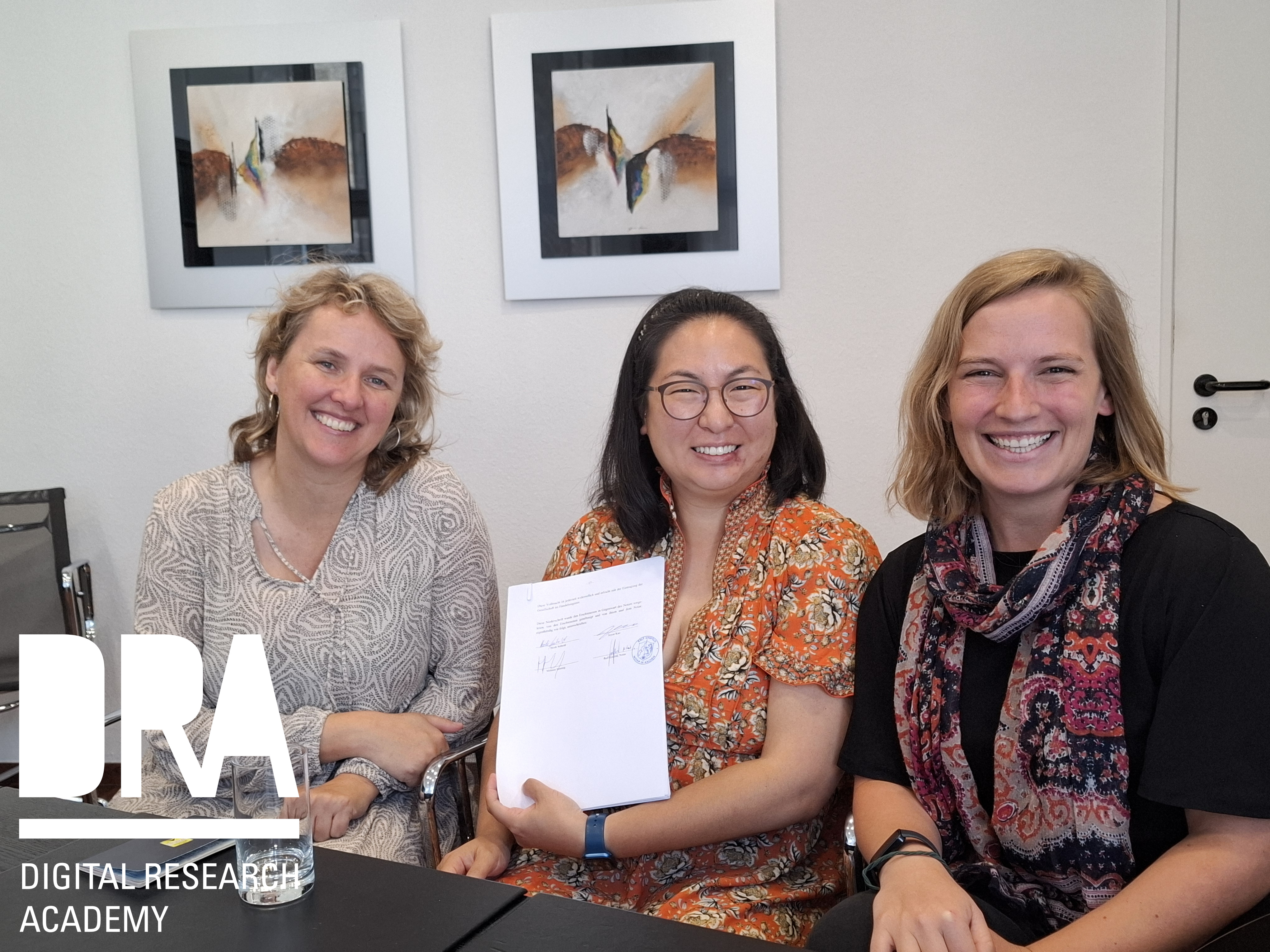Train-the-Trainer program 🧩
A Pilot of the Train-the-Trainer ProgramYou are all experts in your field, the tools that you use and the way you work. The train-the-trainer program wants to ensure that each trainer has the ability to teach their skills to others. Part 1: Learning about DidacticsIn this part we will learn how to be(come) good trainers. We will do so by teaching each other principles of teaching that are based on best practices. We want to break the bad habit of teacher-centered teaching and work according to evidence on how people learn well. Didactics-lesson preparation and teaching can be done alone or in pairs.
Part 2: PracticalsIn this part we will put our new knowledge into practice by teaching a course. Courses may be taught alone or in pairs. The format and type of course can be chosen freely. It just needs to feel like a course and not just a one hour session. These courses will already be official Digital Research Academy courses and course participants will pay a fee for participation (we can offer stipends). This way we can finance the trainer training and learn how well the course (type) sells.
Interested in joining?As this whole thing is an experiment, we'd like to run a pilot of this train-the-trainer program. We've already collected a small fun group of future trainers and would like to offer the possibility for you to join as well. Dates:
Application procedure: Send an email to dra@heidiseibold.de with the following info:
This is a first pilot and it will not be perfect. Also, we will not be able to include everyone. Please be patient with us 🫶 In other newsA couple of other things happened or will happen that I want to share with you!
All the best, Heidi 👋 P.S. If you're enjoying this newsletter, please consider supporting my work by leaving a tip.
|
Heidi Seibold, MUCBOOK Clubhouse, Elsenheimerstr. 48, Munich, 81375 |
Dr. Heidi Seibold
All things open and reproducible data science.
I am excited to share that the Digital Research Academy incorporation is almost done. We had our notary appointment last week, set up the bank account and are now waiting for the official registration of the DRA Digital Research Academy GmbH. I published my first post about the initial idea for the Digital Research Academy in May 2023. Now, just a year and a few months later, the Digital Research Academy is becoming not only an initiative but a company. Last week Joyce Kao, Melanie Imming and...
I am in the process of making my newsletter FAIR (Findable, Accessible, Interoperable, and Reusable). Here's how. I am an advocate for Open Science. The FAIR priciples are very near and dear to my heart. I was excited when the Open Science folks at Jülich archived a bunch of my posts and gave them a persistent identifier (DOI, see archived posts here). This was exactly what I was still missing to make my posts more FAIR. However, I cannot expect them to take care of archiving all my posts and...
I get asked for career advice all the time (even though I am just figuring stuff out myself). Generally I try to help by listening and asking questions, but there is one thing that I tell everyone who wants to hear it: pick work where you like the people. How do you pick the research group you want to work with? My recommendation is to pick based on two things: Do you like the topics they work on? Do you get along with the people in the group (in particular your boss/supervisor)? The first is...
